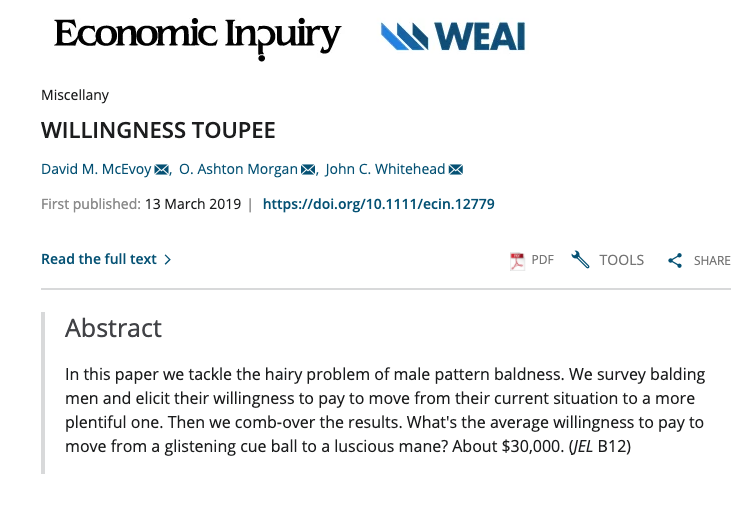Summary:
Guest post by Jeff Mosenkis of Innovations for Poverty Action. Samia Suluhu Hassan was sworn in as Tanzania’s first woman president, following the death of John Magufuli, known for his denial of COVID-19 in the country. Some speculate the virus was the cause of his death rather than the official announced cause, heart failure. A nice article from Dani Rodrik about how economists can get along with other fields. Known for their breadth and willing to take on many kinds of questions, economists often raise the ire of specialists in other fields, and he explains the implicit understanding between different methodological approaches. Economists might find an association between rainfall and civil conflict in data, and announce a link, but that’s very different from starting from “what causes
Topics:
Jeff Mosenkis (IPA) considers the following as important: agriculture, cash transfers, Child tax credit, conflict, development, Economics, Kenya, links, methods, miscellany, news, Portugal, satellites, Tanzania
This could be interesting, too:
Guest post by Jeff Mosenkis of Innovations for Poverty Action. Samia Suluhu Hassan was sworn in as Tanzania’s first woman president, following the death of John Magufuli, known for his denial of COVID-19 in the country. Some speculate the virus was the cause of his death rather than the official announced cause, heart failure. A nice article from Dani Rodrik about how economists can get along with other fields. Known for their breadth and willing to take on many kinds of questions, economists often raise the ire of specialists in other fields, and he explains the implicit understanding between different methodological approaches. Economists might find an association between rainfall and civil conflict in data, and announce a link, but that’s very different from starting from “what causes
Topics:
Jeff Mosenkis (IPA) considers the following as important: agriculture, cash transfers, Child tax credit, conflict, development, Economics, Kenya, links, methods, miscellany, news, Portugal, satellites, Tanzania
This could be interesting, too:
Lars Pålsson Syll writes Schuldenbremse bye bye
Lars Pålsson Syll writes What’s wrong with economics — a primer
Lars Pålsson Syll writes Krigskeynesianismens återkomst
Lars Pålsson Syll writes Finding Eigenvalues and Eigenvectors (student stuff)
Guest post by Jeff Mosenkis of Innovations for Poverty Action.
- Samia Suluhu Hassan was sworn in as Tanzania’s first woman president, following the death of John Magufuli, known for his denial of COVID-19 in the country. Some speculate the virus was the cause of his death rather than the official announced cause, heart failure.
- A nice article from Dani Rodrik about how economists can get along with other fields. Known for their breadth and willing to take on many kinds of questions, economists often raise the ire of specialists in other fields, and he explains the implicit understanding between different methodological approaches. Economists might find an association between rainfall and civil conflict in data, and announce a link, but that’s very different from starting from “what causes regional conflict” the way a historian or political scientists might. (h/t Matt Collin)
- How Portugal is starting to acknowledge its role in the slave trade
- Randall Blair of Mathematica tries to distill lessons in why it’s so hard for large scale agriculture interventions to make a difference in farmers’ lives. So many factors go into farm output (like weather and supply chains) and the more farmers a program tries to reach, the more opportunities there are for the original program to get watered down. Another is that there are many different kinds of farmers, and often it’s only the better-off ones who are able to take advantage of new offers of assistance effectively. He recommends starting with smaller segments of farmers and a deeper understanding of their constraints, but donors need to set longer time frames and allow for testing and adjustment of programs.
- Vogue had a nice article about Kenya’s women coders, and how schools training women there are correcting trends in the industry so they don’t repeat the mistakes of Silicon Valley.
- Marshall Burke, Anne Driscoll, David B. Lobell & Stefano Ermon have a new piece out in Science reviewing what’s known about satellite measures for measuring livelihoods (the article’s gated but Marshall has a twitter thread explaining it here). Paired with machine learning, there’s incredible potential, for broad and often quite accurate measurements, but it’s best accomplished when combined with traditional on-the-ground measures, including because the ML needs good training data. They recommend satellite measurements as an amplification, rather than a replacement, for traditional measures.
- With child tax credits in the news, a new paper from Baker, Messacar & Stabile analyzes two Canadian programs that cut child poverty without reducing parents’ working. And for the U.S. Matt Darling reviews evidence showing that giving cash doesn’t make people work less.
If it’s been a long week, enjoy this title and abstract:
